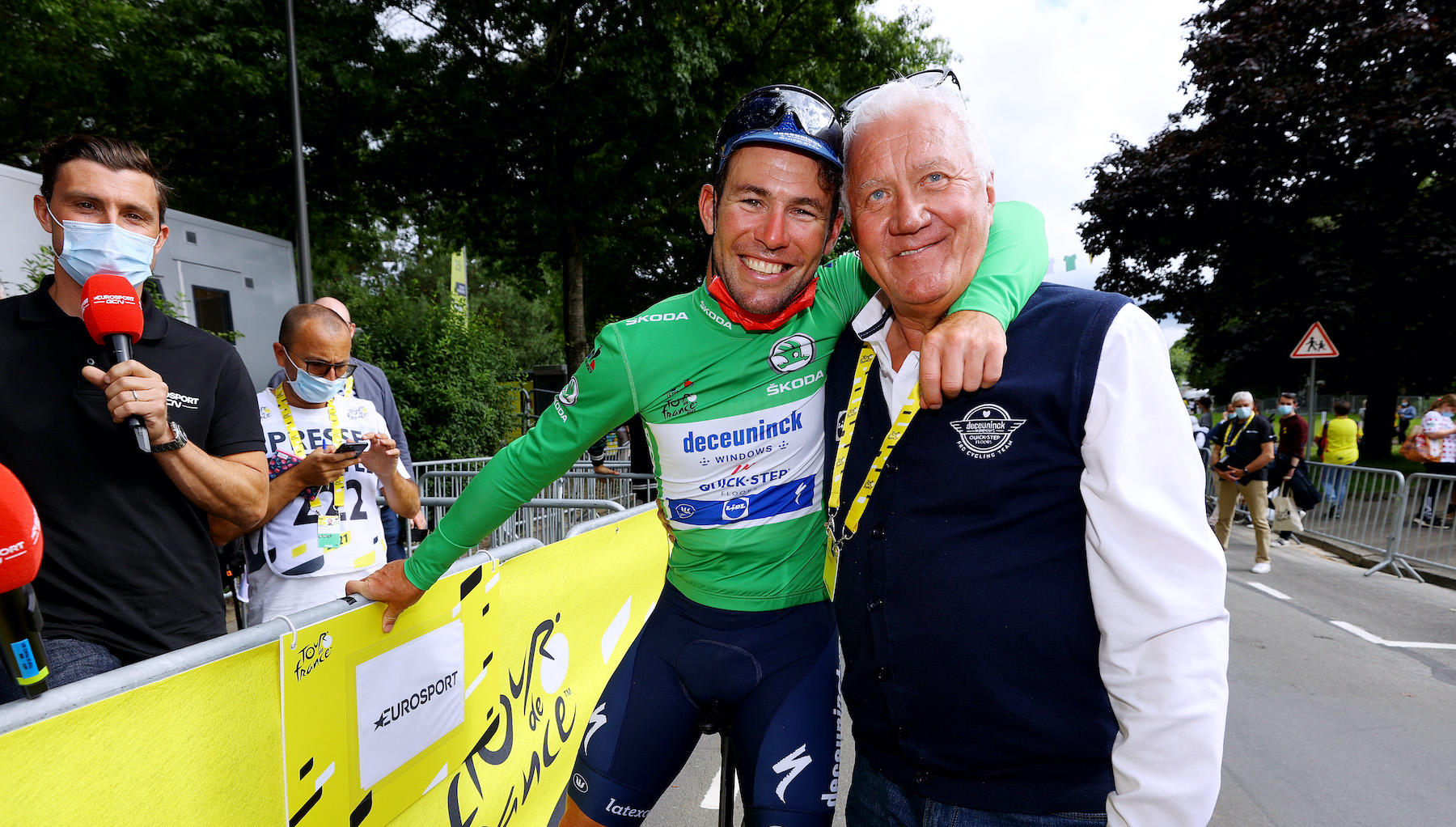
Patrick Lefevere became a sports director in 1979, the year Margaret Thatcher came to power, during the Cold War, in a world that seems so distant to 2024. Over 40 years on, it was announced earlier this month that the Belgian would leave his role as CEO of Soudal Quick-Step, the team that he has been in charge of for the past 22 years.
For a remarkable 11 of those years, Quick-Step in its various iterations won the most races of any cycling team on the WorldTour, winning 981 races in total according to ProCyclingStats. During Lefevere's time at the helm, the team won 22 Monuments, including eight editions of the Tour of Flanders, which gave it a reputation as the men to beat in the Classics. He also oversaw a transition into a GC team, led by their latest star rider, Remco Evenepoel, who claimed Quick-Step's first Grand Tour victory, the 2022 Vuelta a España. They also won 124 Grand Tour stages.
Over the years, the stars he has managed have included Tom Boonen - 120 wins for the squad - Mark Cavendish (59), Evenepoel (57), Julian Alaphilippe (42) and Paolo Bettini (42).
Another of those stars, Johann Museeuw, who worked with Lefevere from his days as a sports director at Mapei to Quick-Step, won 43 races while they worked together.
“Tactically, he was a very good sports director,” he told Cycling Weekly. “You don’t have to be a special rider to be a very good sports director. He knew how to win bike races and control the team, even when there were a lot of big riders there. He didn’t seem to ever have any problems with this.
“He was in cycling for such a long time, but also with the same sponsors, that’s pretty unique. He was a gentleman with the sponsors. It was in the last years that the team changed a bit, it was not so much of a Classics squad any more, with Remco as a GC rider. We will remember him as one of the best for the spring Classics, though, absolutely.
“He has it in him to control and work with champions. Champions are a little bit different to other people, they are not easy to work with, but he was always there to help when it was necessary. He had a special way to motivate the riders.”
Also at Quick-Step from 2012 to 2022 was Brian Holm, who worked as a sports director under his rambunctious CEO.
“What I always liked about Patrick was that he was never afraid to gamble a bit and take some chances,” Holm explained. “He could make people winners and the best example of that was taking back Cavendish [in 2021]. He became a star again that year but you must keep in mind that when we re-signed him everyone was laughing at us, people really took the piss. People spoke about it like it was a big joke but Patrick was determined to give Mark a chance again and look what happened, he got him back on track.
“At the end of the day people like him or they don’t and that’s it. But he’s been in management since 1979 and that’s quite something, there’s nobody else like him.”
“It’s great what they started to do lately with Remco Evenepoel but for me it was always against the team’s DNA," Holm continued. “I liked the old Classics team, the cobblestones, the cross-winds, crazy guys doing crazy stuff. Now it has turned into a GC team and when you have a GC guy you don’t gamble.”
Away from races, Lefevere was a controversial figure, publicly criticising his riders at times, including Sam Bennett, Alaphilippe and Kasper Asgreen, in sometimes colourful language.
Earlier this year, he apologised for making derogatory remarks about women, after being threatened with a hefty fine by the UCI.
“Quick-Step were probably one of the last old fashioned cycling teams where you had a big boss, Patrick, who makes the rules,” Holm said. “Patrick always had your back too, he’d say the press don’t control my team, I do. He really cares about his staff.”
The team, as Museeuw and Holm have referenced, have become more of a GC vehicle, for Evenepoel, than a Classics squad in its old guise. As a result, perhaps it was time for Lefevere to move on.
That might be difficult, though, with the loss of his knowledge and insight, built up over the four decades he spent at cycling’s highest level. “It will be quite difficult for the team without him,” Museeuw concluded.





